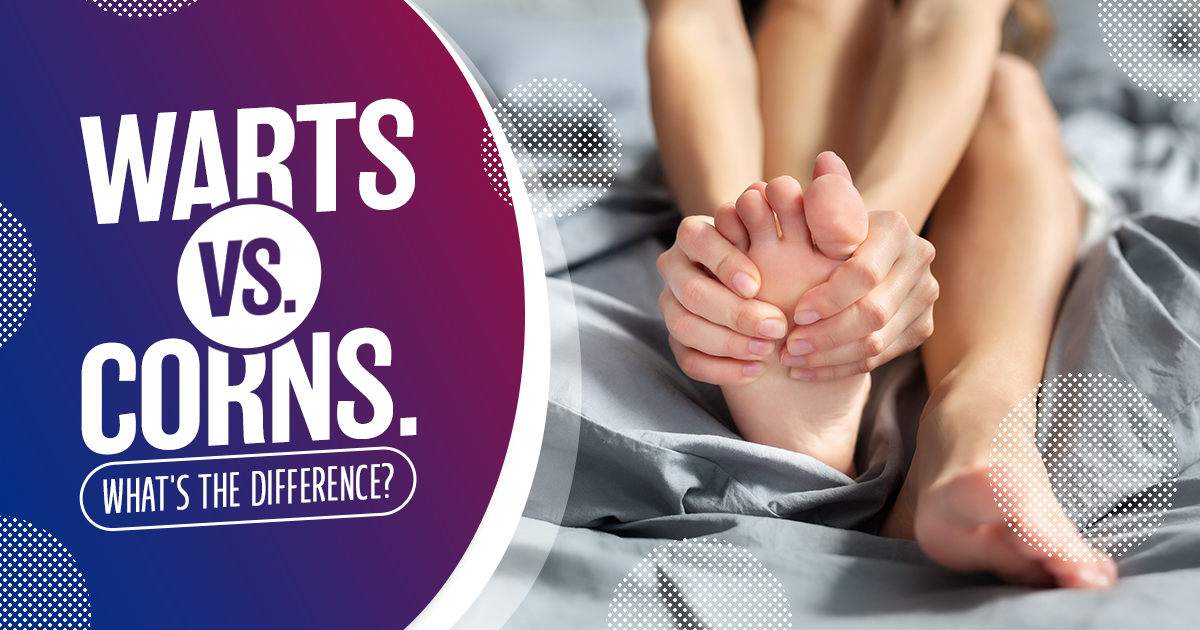Plantar warts and corns can be unsightly. They both can appear on the feet and have a similar appearance. Despite some similarities, they are not the same. Their appearance, where they are located on the foot, and their primary cause are some factors that set them apart. Here’s how to tell the difference between warts and corns.
What is a Plantar Wart?
Plantar warts are caused by the HPV virus entering the body through cuts, breaks, or other weak areas on the bottom of the foot. The small, fleshy, rough, and grainy growths usually appear at the base of the toes or the heel. Due to the pressure on the bottom of the foot, they can grow inward and form a callus over a well-defined spot. Other symptoms consist of:
- Black pinpoints
- A lesion that changes the normal lines and ridges in the skin of your foot
- Pain when walking or standing
Plantar warts are usually harmless and go away eventually with treatment. In many cases, at-home remedies may solve the issue before going to your doctor. The strain of HPV is not easily transmittable by direct contact but instead thrives in warm, moist environments.
What is a Foot Corn?
A foot corn is a yellowed raised, hardened, thick layer of skin surrounded by flaky skin. Corns develop from the skin’s reaction to friction and pressure. They form beneath nail beds, between toes, and on the sides and bottoms of feet.
- The area is sensitive to touch
- Pain when wearing shoes
The leading cause of foot corns is wearing shoes that are too snug on the feet. You can also get them from consistently standing or walking for long periods.
Treatments
Foot corns are easier to get rid of, as much of the treatments can be done at home. Corn pads containing salicylic acid and soaking and filing down the corn till they are gone, are the most common ways to reduce or remove the corn.
Plantar warts do not always require treatment and may go away on their own, but it can take a year or two. If the warts are painful and spread, over-the-counter options can help, though they may take repeated treatments. Prescription-strength wart medications with salicylic acid, cryotherapy, and immune therapy, are some of the treatments your podiatrist can recommend.

Plantar warts can be painful and stubborn even though you’ve tried everything available. Potential new options are being studied through clinical trials. If you have plantar warts and are interested in learning more about the upcoming studies here at Endeavor Clinical Trials, call (210) 949-0807, or click here.
References:
https://www.mayoclinic.org/diseases-conditions/plantar-warts/symptoms-causes/syc-20352691





